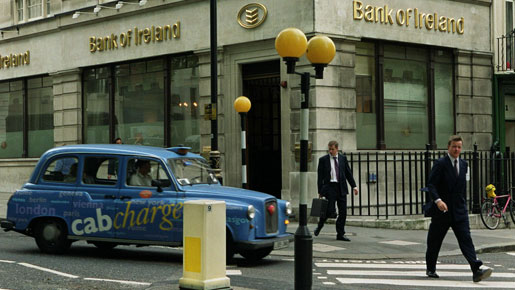
Ireland’s beefed-up financial regulator needs the authority to levy stiffer fines, its new chief said as he announced plans to double staff numbers over the next two years.
Matthew Elderfield, hired to lead an overhaul of Ireland’s antiquated regulatory infrastructure, said he was surprised how poorly resourced the system was since taking over as head of financial regulation at the central bank in January.
Weak regulation played a major role in the near collapse of Ireland’s banking system last year which led to the nationalisation of one bank, recapitalisation and the establishment of a 54 billion euro “bad bank” to cleanse the sector of soured property loans.
Elderfield said he plans to bring staffing levels up to 520 this year, an increase of about 160 on last year, adding a further 200 staff over the following two years in an attempt to bring Ireland in line with international norms.
“It is clear that we have a long way to go to get to the benchmark internationally,” Elderfield told the Irish Times in his first newspaper interview since swapping his position as head of the Bermuda Monetary Authority for Ireland.
“You need to be able to man-mark the biggest financial firms – you need to be able to match them in skills, expertise.” In his first public comments after his appointment, Elderfield said the regulator would mete out tougher penalties, but that it would take time to set up the new system.
Recently, he said the regulator’s top penalty of 5 million euros “is not a strong enough level of deterrent.”
Fines handed out for regulatory breaches have jumped to more than 3.5 million euros in both 2008 and 2009 from only a few thousand the year before.
However Elderfield reiterated that Ireland would not over-compensate and switch from being a light-touch regime to one that is overly severe.
“The rule book needs to be tightened. I don’t think it needs to swing to the extreme, but there needs to be some tightening up, particularly for the banks,” he said.
“That willingness to be assertive, a bit pushy, a bit challenging – that’s the missing element that needs to be brought to bear.”

